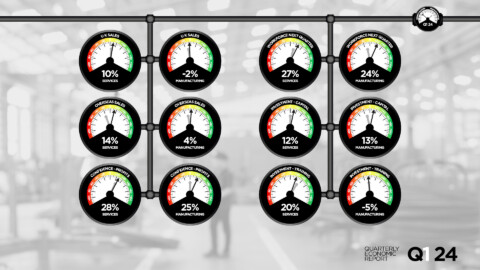Top 10 Tips from our Transition Team
Top 10 Tips from our Transition Team
1. Check if there is a trade deal with the import and export countries you are working with. Trade agreements open up for preferential tariff treatment in some cases and utilizing the agreements would make your business more competitive.
2. Make sure you are registered as exporter/importer if needed, incl. for trade with the EU A trader who wants to export from the UK should be registered as exporter. The same is the case for importers. As from 1 January 2021 trade with the EU is considered as import/export transactions with a 3rd country
3. Country of origin is different from country of consignment. Free trade agreements give access to preferential tariff treatment for goods originating in the signatory countries. To be originating, goods must comply with the origin requirements in the trade deal. Being shipped from a country does not necessarily mean that the goods originate in that country.
4. Check if the goods you are importing and/or exporting comply with the rules of origin in the trade deal as this would give access to lower or zero customs duties. If you import originating goods or components for further manufacturing, you can benefit from a preferential tariff treatment if these comply with the rules of origin. Likewise, if you export originating goods, the importer can benefit from lower or zero customs duties.
5. Check what kind of proof of origin is needed for your goods. Trade deals include provisions on the proof needed to apply for a preferential tariff treatment. The proof can be a paper certificate, a declaration or a statement made by the exporter on a commercial document. Some countries also require a non-preferential certificate of origin for imports.
6. Make sure you are approved to make declarations and statements on origin Some trade agreements require traders to be registered or approved to make origin declarations on commercial documents instead of having certificates of origin issued for each shipment of goods
7. Do I comply with transport requirements in the trade deal? Some trade agreements require direct transportation from the exporting to the importing country. In case of transit in a 3rd country, the importer should be able to prove that the goods were not altered or further processed while in transit.
8. Keep records! Record keeping is mandatory according to national legislation as well as required in trade deals. These records will be used in case of verification by customs of the origin of imported and exported goods.
9. Do I have all the necessary supporting documents in case of a verification or control carried out by customs? The supporting documents are used to prove the origin of imported/exported goods, including declarations from UK suppliers or proofs of origin from suppliers in 3rd countries, including the EU.
10. The importer is ultimately liable for a correct customs declaration and, thereby, a correct calculation and payment of customs duties. If a subsequent verification by customs reveals that a preferential tariff treatment was unduly claimed, the importer will have to pay customs duties and could be subject to sanctions for an incorrect declaration.







